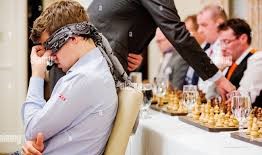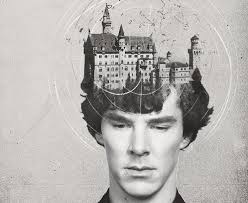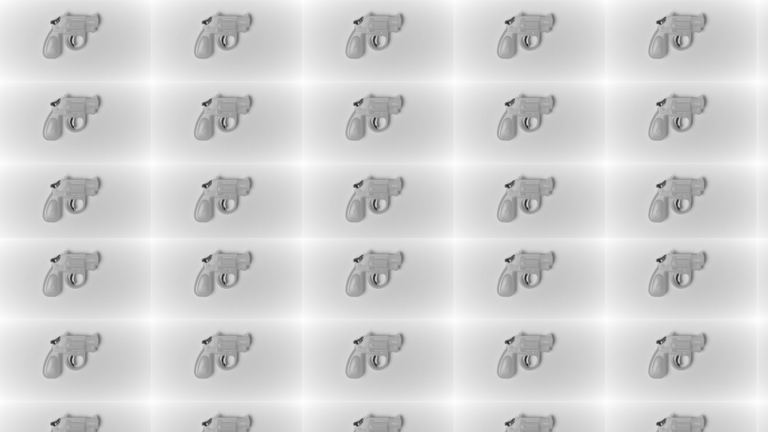When do you get good at something?
In Moonwlaking With Einstein, Joshua Foer explains that chess grand masters play by memory, meaning that how they play is guided as much by memory of past games, of patterns they’ve seen before, as much as by their conscious analysis of the board and the different possibilities.
He cites the tests performed by a Dutch psychologist, Adriaan de Groot, who found out that “For the most part, the chess experts didn’t look more moves ahead… they didn’t even consider more possible moves… they tended to see the right moves and they tended to see them almost right away”.
Other studies have found that the ability to memorise board positions is a good indicator of how good somebody is as a chess player. Using magnetoencephalography, researchers have seen that higher rated chess players are more likely to have more active frontal and parietal cortices of the brain, which they relate to recalling information from memory.
Memory
The role of memory and pattern recognition is not unique to chess.
From Joshua Foer’s book: “There is something about mastering a specific field that breeds a better memory for the details of that field… Experts see the world differently. They notice things that nonexperts don’t see. They home in on information that matters the most…In most cases skill is not the result of conscious reasoning but of pattern recognition. It is perception and memory, not analysis”
Veteran waiters don’t have to write down orders. Experienced SWAT officers are more likely to spot someone carrying a bomb (e.g. into a school). People with a skill process a lot of information very quickly, without being aware, be it a fireman or a pro tennis player.

Regularity
In his book Thinking Fast, Thinking Slow, Daniel Khaneman also pointed out the importance of memory and pattern recognition for acquiring skills. The two basic conditions are: an environment that is sufficiently regular to become predictable; an opportunity to learn these regularities through practice. A predictable environment is especially helpful when it is possible to get immediate and clear feedback.
Being able to get feedback fast conditions when intuition can really be trusted. A psychotherapist will interact many times with a patient, and he will have many opportunities to see how his words affect the patient; but he will have little feedback on the long term effect of his therapy on the patients’ outcome, which will also be influenced by many other factors.
A chess player can play games over and over; the board does not change and neither the rules; over time he will be exposed to very different game developments and outcomes. The same happens to someone learning to play an instrument; he or she will probably use the same instrument for a long time; after time she can anticipate very well what happens when it is stroked or pressed in a certain way.
Intuition
In these situations, repeated practice leads to expert intuition; the mind has become very adapted to what different cues lead to.
But there are some environments that are just too unpredictable; there is not a lot of regularity. It is very difficult to develop real expert intuition.
In these situations, a statistical method might perform relatively better than intuition, even if it still has a large degree of error. This might be good enough to be very successful. In his book on the story of hedge fund Renaissance Technologies, Gregory Zucherman explains that “Astronomers, who are accustomed to scrutinizing large, confusing data sets and discovering evidence of subtle phenomena, proved especially capable of identifying market patterns…The gains on each trade were never huge, and the fund [Renaissance] only got it right a bit more than half the time, but that was more than enough”.
Focused drilling
Most people, when they first learn to type with a keyboard, they improve quickly, first typing with two fingers but eventually using many fingers effortlessly and unconsciously across the keyboard. At this point progress slows down and stops. We reach a plateau. Despite the saying “practice makes perfect” (and that many people spend many hours typing at a keyboard), we do not get much better at it.
There are 3 stages when learning a skill: a “cognitive stage”, when you have to concentrate, you are reasoning about the task and thinking about different ways how to do it; an “associative stage”, when you become better, make less mistakes and don’t have to concentrate as much; and a third stage, “the autonomous stage”, when you are satisfied with how good you are and have moved on to autopilot. This is a result of evolution and how the mind works; it can carry out many tasks without us consciously being aware of it, and we concentrate on just a few.
When we start doing something on autopilot, we have reached the “Ok plateau”. We stop making a conscious effort to improve. Joshua Foer cites the work of Swedish psychologist Anders Ericsson, who has studied skill acquisition. In many fields, what separates experts from the rest is that they tend to engage in directed and highly focused routines. They try to avoid autopilot by practicing in a way that focuses on technique; and by being goal focused and having continuous and immediate feedback on how they are doing. Surgeons get better over time because they get feedback, the outcome of the surgery is apparent.
In a recent interview, martial arts instructor John Danaher talked about drilling, meaning practicing the same move again and again. He emphasised that getting better does not depend on the number of repetitions. When drilling, if someone is focussing his mind on the numbers and not on the body movements and where he is finding difficulty, his skill will not improve. The downside of all this is that deliberate practice can be less fun. To get better, ice skaters must practice the jumps they land less often.
Moonwalking with Einstein
Joshua Foer tells the story of how he went from curious journalist to US memory champion. Along the way he explains how he learnt to memorise digits, poems, faces and names, and decks of cards; what is known about how memory works and how it can be improved; how over time the role of memory in education has changed as we have more access to external memories (memories stored outside our brain).

There are techniques to improve your memory. Memory champions learn to construct memory palaces in their minds, where they place specially memorable images that will be cues to remember numbers, dates, words, or something else. These techniques date back to ancient Greece.
Evolution has made it easier for us to remember images in places. Researchers have found that the brain of mental athletes is not different than normal people, but they use more those parts that are engaged with visual and spatial location.
We find it difficult to remember isolated facts. It is much easier to remember things in a context, when they are related, hooked, to other things. Context and hooks are developed with experience and exposure. This happens also in our social interactions. Like, with time we pick up cues on if the person we are talking to is serious about something, committed, etc.
Joshua Foer explains how at one moment his memory skills stopped improving, no matter how much he practiced. He did not improve until he started keeping a journal where he logged his daily performance in practice and wrote down his difficulties. This is how AIs are trained to become good at chess, go or StarCraft; they optimise to maximise a certain performance metric.
For us, what we have found, is that what is key is to measure or track systematically the few things that are important. And to keep doing it over time.



